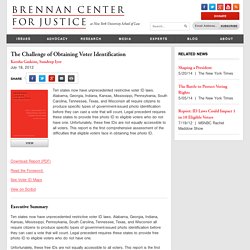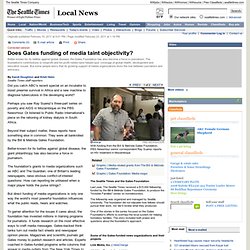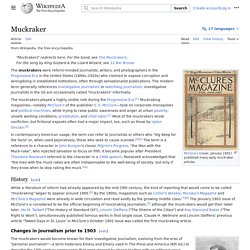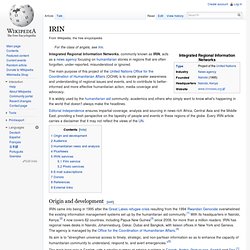

The Challenge of Obtaining Voter Identification. Ten states now have unprecedented restrictive voter ID laws.

Alabama, Georgia, Indiana, Kansas, Mississippi, Pennsylvania, South Carolina, Tennessee, Texas, and Wisconsin all require citizens to produce specific types of government-issued photo identification before they can cast a vote that will count. Legal precedent requires these states to provide free photo ID to eligible voters who do not have one. Climate report puts geoengineering in the spotlight. Tomohiro Ohsumi/Bloomberg/Getty Images Advocates of geoengineering argue that as emissions keep rising their technology will come into its own.

Attempts to counter global warming by modifying Earth's atmosphere have been thrust into the spotlight following last week's report from the United Nations’ Intergovernmental Panel on Climate Change (IPCC). Mention of ‘geoengineering’ in the report summary was brief, but it suggests that the controversial area is now firmly on the scientific agenda. Some climate models suggest that geoengineering may even be necessary to keep global temperature rises to below 2 °C above pre-industrial levels.
Climate Progress. Ad hominem. An ad hominem (Latin for "to the man" or "to the person"[1]), short for argumentum ad hominem, is a general category of fallacies in which a claim or argument is rejected on the basis of some irrelevant fact about the author of or the person presenting the claim or argument.[2] Fallacious Ad hominem reasoning is normally categorized as an informal fallacy,[3][4][5] more precisely as a genetic fallacy,[6] a subcategory of fallacies of irrelevance.[7] Ad hominem reasoning is not always fallacious, for example, when it relates to the credibility of statements of fact.

Ad hominem arguments are the converse of appeals to authority, and may be used in response to such appeals. List of cognitive biases. Systematic patterns of deviation from norm or rationality in judgment Cognitive biases are systematic patterns of deviation from norm and/or rationality in judgment. They are often studied in psychology, sociology and behavioral economics.[1] Diffen - Compare Anything. A Project of the Annenberg Public Policy Center. Presidential Elections. 2012 Republican National Convention - Official Website of the 2012 Republican National Convention. Back to School in the Twilight of Capitalism. Universities serve multiple purposes in a modern capitalist society.

One of those purposes–the education of young adults–is a noble and worthy one. It is how this is done that is often less noble. If capitalism requires technicians and managers, it is technicians and managers that are trained. Marginal Revolution — Small steps toward a much better world. Cancer research: Open ambition. Jay Bradner has a knack for getting the word out online.

You can follow him on Twitter; you can become one of more than 400,000 online viewers of the TEDx talk he gave in Boston, Massachusetts, last year; you can see the three-dimensional structure of a cancer-drug prototype created in his laboratory and you can e-mail him to request a sample of the compound. Bradner, a physician and chemical biologist at the Dana-Farber Cancer Institute in Boston, makes defeating cancer sound easy — one just has to play tricks on its memory. “With all the things cancer is trying to do to kill our patient, how does it remember it is cancer?”
Latest Outer Space News, Breaking Headlines. 2012 Current Events. Does Gates funding of media taint objectivity? Originally published February 19, 2011 at 5:01 PM | Page modified February 23, 2011 at 1:16 PM.

Knowledge Quest 2012 - How to Make a Timeline Easily. Chinese Activist Chen Guangcheng Escapes House Arrest in China. Muckraker. McClure's (cover, January 1901) published many early muckraker articles.

The term muckraker was used in the Progressive Era to characterize reform-minded American journalists who attacked established institutions and leaders as corrupt. They typically had large audiences in some popular magazines. In the US, the modern term is investigative journalism — it has different and more pejorative connotations in British English — and investigative journalists in the USA today are often informally called 'muckrakers'. Muckraking magazines—notably McClure's of the publisher S. S. The muckrakers played a highly visible role during the Progressive Era period, 1890s–1920s.[2] In contemporary American use, the term describes either a journalist who writes in the adversarial or alternative tradition, or a non-journalist whose purpose in publication is to advocate reform and change.[3] Investigative journalists view the muckrakers as early influences and a continuation of watchdog journalism.
IRIN. Integrated Regional Information Networks, commonly known as IRIN, acts as a news agency focusing on humanitarian stories in regions that are often forgotten, under-reported, misunderstood or ignored.

The main purpose of this project of the United Nations Office for the Coordination of Humanitarian Affairs (OCHA) is to create greater awareness and understanding of regional issues and events, and to contribute to better-informed and more effective humanitarian action, media coverage and advocacy. It is widely used by the humanitarian aid community, academics and others who simply want to know what's happening in the world that doesn’t always make the headlines. Editorial independence ensures impartial coverage, analysis and sourcing in news-rich Africa, Central Asia and the Middle East, providing a fresh perspective on the tapestry of people and events in these regions of the globe.